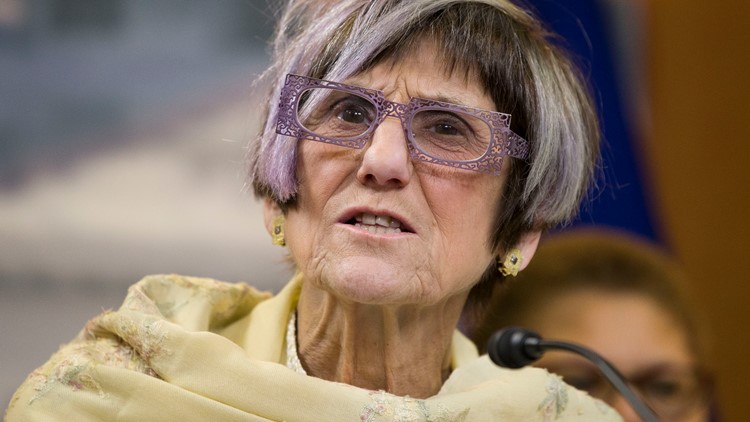WASHINGTON (AP) — Trump administration bargainers offered a one-year budget freeze and said Democratic spending demands remained too high as talks with congressional leaders aimed at averting deep cuts in defense and domestic programs this autumn seemed no closer to resolution.
Emerging from a session in House Speaker Nancy Pelosi's office that lasted over an hour, Treasury Secretary Steven Mnuchin said that without an agreement, the White House was prepared to live with a one-year extension of this year's budget. That would prevent an enormous $125 billion in automatic cuts to defense and domestic programs that would otherwise be triggered by law, which both parties want to avoid.
Mnuchin said the administration would also agree to extend the federal debt limit for a year. The government is projected to deplete its legal ability to borrow money after the summer, which would prompt an unprecedented failure by the government to repay its debt that could rattle the world's economy.
"The president has every intention of keeping the government open and keeping the soundness of the full faith and credit of the government," Mnuchin told reporters. He said both sides agreed not to hold the debt limit "hostage to spending."
In a joint statement issued after the meeting, Pelosi, D-Calif., and Senate Minority Leader Chuck Schumer, D-N.Y., seemed to bristle at White House involvement in the negotiations. They said Democrats "are committed" to working with congressional Republicans to avert automatic spending cuts, the constraints of a budget freeze and the threat of a federal default.
"If the House and Senate could work their will without interference from the President, we could come to a good agreement much more quickly," the two Democrats said.
Democrats have been pushing for increased spending for domestic programs, not a freeze, as a tradeoff for the big Pentagon increases that President Donald Trump and congressional Republicans are demanding.
The remarks suggested that the two sides were not near a handshake that would not only avert automatic spending cuts, but give each side the increases they desire, perhaps over the next two years. The new federal fiscal year begins Oct. 1. Leaders are trying to reach an agreement as soon as they can to allow time to pass compromise spending bills reflecting an agreement.
If automatic spending cuts known as sequestration strike, they would cut about 10 percent from agency budgets.
Acting White House chief of staff Mick Mulvaney, exiting the negotiating session, said Democrats had actually increased their demand for domestic spending since the last bargaining session in May to $647 billion, which he said is $8 billion above their previous offer.
"So you tell me if things are moving in the right direction. Last time I checked, that's not how you compromise," he said.
Minutes earlier, a top congressional GOP bargainer had seemed more optimistic.
"We're close but we're not there yet," Senate Appropriations Committee Chairman Richard Shelby, R-Ala., told reporters.
Earlier, the Democratic-controlled House passed a $1 trillion spending bill that amounts to an opening bid in the guns vs. butter fight with the Trump administration.
The House voted along party lines to pass the bill, which blends the military spending that's a priority for Republicans with Democratic-sought funding increases for health and education programs.
The House-passed bill far exceeds Trump's budget request for domestic programs, attracting a White House veto threat, and denies him his full Pentagon budget increase.
It also contains policy "riders" related to abortion and other hot-button issues that drove away potential GOP supporters, though Democrats sidestepped a potentially divisive battle by preserving a longtime ban on taxpayer-financed abortion.
The bill boosts the Pentagon budget by about $16 billion over current levels, about a 2% increase, while giving health, education and labor programs an almost 7% boost. Those numbers would have to balance out more to gain Trump's signature.
Action on the measure comes as Democrats have been struggling to get their message out above the political din of Trump's Washington. The bill wraps four of the 12 annual spending measures into one, and Democrats are boasting of gains for Head Start, health research and fighting the opioid epidemic, among the myriad programs covered by the measure.
It also contains provisions to block Trump from reassigning military appropriations to fund his border wall, and contains significantly more money for family planning, preschool education and child care, and research into dangerous diseases.



